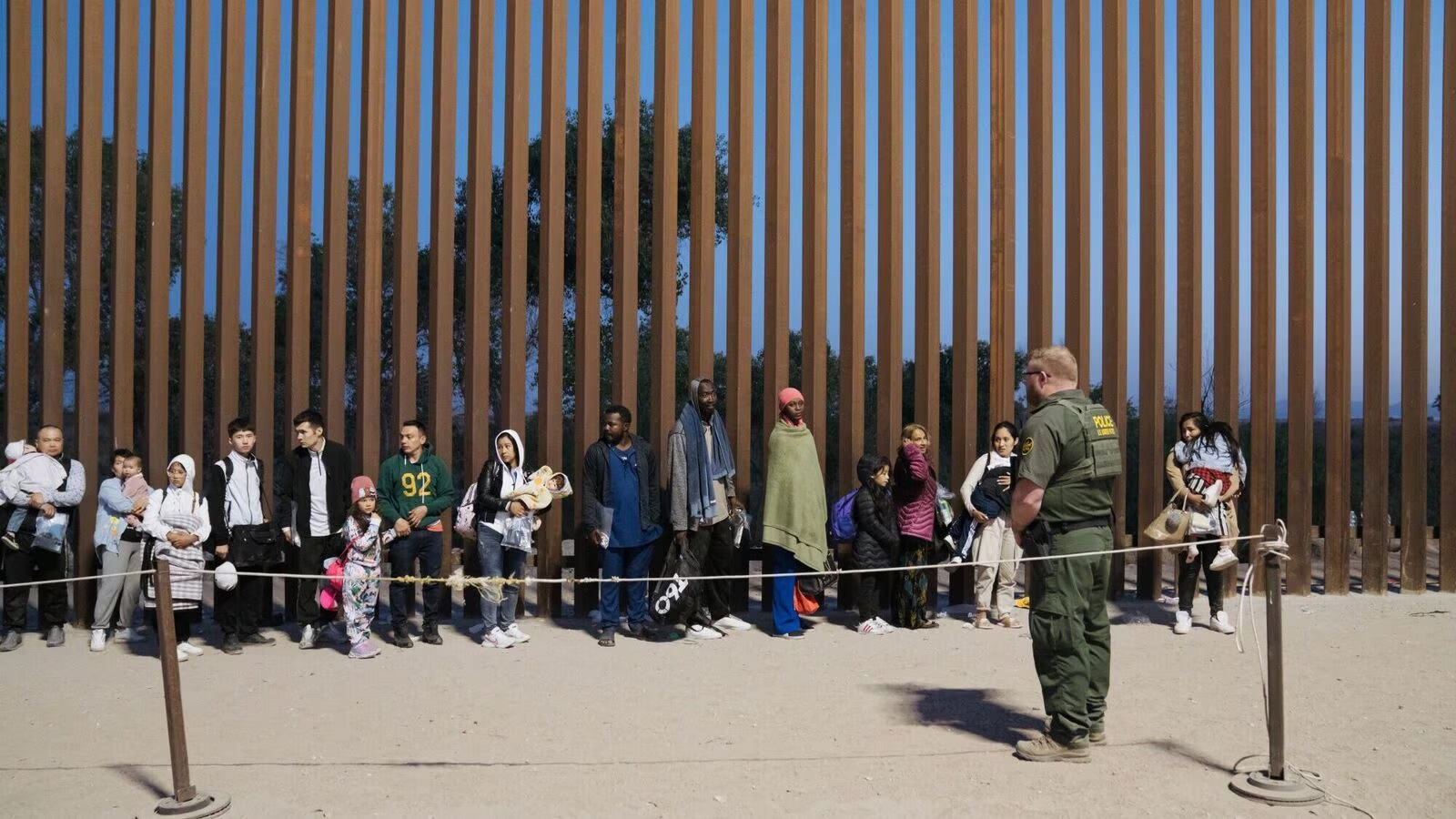The Biden administration has put a hold on a migrant sponsorship policy designed to reduce illegal crossings at the U.S.-Mexico border due to concerns about sponsor fraud, officials announced on Friday.
The policy, which allows up to 30,000 migrants from Cuba, Haiti, Nicaragua, and Venezuela to enter the U.S. legally each month, requires American sponsors to provide financial support for them.
This initiative, launched in late 2022 and expanded in early 2023, was intended to deter migrants from these crisis-affected countries from making the perilous journey to the U.S. southern border.
The Department of Homeland Security (DHS) has halted the issuance of travel documents for those applying under this program while it investigates the applications from U.S.-based sponsors.
“Out of an abundance of caution, DHS has temporarily paused the issuance of advanced travel authorizations for new beneficiaries while it undertakes a review of supporter applications,” the department stated on Friday. “DHS will resume application processing as quickly as possible, with appropriate safeguards.”
Initially, DHS ceased granting travel authorizations to Venezuelans under the policy, known as CHNV, in July, and later extended this pause to the other three nationalities, according to two sources familiar with the internal process who spoke with CBS News.
The pause was prompted by concerns from the fraud detection branch of U.S. Citizenship and Immigration Services (USCIS), which identified a significant number of applicants attempting to sponsor multiple migrants.
The fraud concerns being investigated are related to the individuals in the U.S. who are applying to sponsor migrants, rather than the migrants themselves.
Reports have suggested that some individuals have been advertising sponsorship opportunities online. Applicants must be U.S. citizens, residents, or otherwise have legal status in the country.

DHS mentioned that it refers cases of immigration fraud to the Justice Department for possible criminal prosecution. The department also emphasized that it has not found “issues” with the vetting process for migrants eligible for the sponsorship program.
Rep. Mark Greene, a Republican and chair of the House Homeland Security Committee, stated that the program’s suspension “vindicates” his concerns about it.
“This is exactly what happens when you create an unlawful mass-parole program to avoid the political embarrassment and bad optics of overwhelmed borders,” Greene said in a statement. “The Biden-Harris administration should terminate the CHNV program immediately.”
Since its launch, the CHNV policy has permitted approximately 520,000 migrants from Cuba, Haiti, Nicaragua, and Venezuela to enter U.S. airports after undergoing security vetting, according to government data.
Although migrant arrivals from these countries to the U.S. southern border reached record levels in previous years, they have significantly declined since the implementation of the CHNV program.
The administration has coupled this program with a policy of returning migrants from these nations to Mexico if they enter the U.S. illegally.
Republican-led states have challenged the CHNV program in federal court, arguing that it violates the intent of the humanitarian parole law used by the Biden administration to admit migrants under this initiative.
Earlier this year, a federal judge in Texas dismissed the lawsuit from the red states, ruling that they had not been harmed by the policy. The states are appealing this decision.
Migrant crossings at the U.S.-Mexico border reached record highs in 2022 and 2023 but have dropped significantly this year, with July marking the lowest levels in nearly four years. Officials attribute this decline to President Biden’s crackdown on asylum seekers, extreme summer temperatures, and Mexico’s efforts to curb migration.


